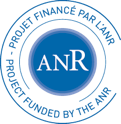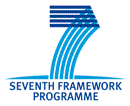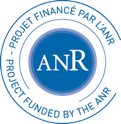Research Projects
Title: Composing Learning for Artificial Cognitive Systems
Role: participant
Summary: One of the aspirations of machine learning is to develop intelligent systems that can address a wide variety of control problems of many different types. However, although the community has developed successful technologies for many individual problems, these technologies have not previously been integrated into a unified framework. As a result, the technology used to specify, solve and analyse one control problem typically cannot be reused on a different problem. The community has fragmented into a diverse set of specialists with particular solutions to particular problems. The purpose of this project is to develop a unified toolkit for intelligent control in many different problem areas. This toolkit will incorporate many of the most successful approaches to a variety of important control problems within a single framework, including bandit problems, Markov Decision Processes (MDPs), Partially Observable MDPs (POMDPs), continuous stochastic control, and multi-agent systems. In addition, the toolkit will provide methods for the automatic construction of representations and capabilities, which can then be applied to any of these problem types. Finally, the toolkit will provide a generic interface to specifying problems and analysing performance, by mapping intuitive, human-understandable goals into machine-understandable objectives, and by mapping algorithm performance and regret back into human-understandable terms.
Website: http://www.complacs.org/
FP7 COMPLACS (2009-2013)
Title: Exploration-Exploitation for Efficient Resource Allocation, applications to optimization, control, learning and games
Role: participant
Summary: The project deals with the question of how to make the best possible use of available resources in order to optimize the performance of some decision-making task. In the case of simulated scenarios, the term resource refers to a piece of computational effort (for example CPU time, memory) devoted to the realization of some computation. Nonetheless, we will also consider the case of real-world scenarios where the term resource denotes some effort (real-world experiment) that has a real, e.g. financial, cost. Making a good use of the available resources means designing an exploration strategy that would allocate the resources in a clever way such as to maximize (among the space of possible exploration strategies) the performance of the resulting task. Potential applications are numerous and may be found in domains where a one-shot decision or a sequence of decisions has to be made, such as in optimization, control, learning, and games.
ANR EXPLO-RA (2009-2013)



Title: Extraction and Transfer of Knowledge in Reinforcement Learning
Role: principal investigator
Summary: EXTRA-LEARN is directly motivated by the evidence that one of the key features that allows humans to accomplish complicated tasks is their ability of building knowledge from past experience and transfer it while learning new tasks. We believe that integrating transfer of learning in machine learning algorithms will dramatically improve their performance and enable them to solve complex tasks. We identify in the reinforcement learning (RL) framework the most suitable candidate for this integration. RL formalizes the problem of learning an optimal control policy from the experience directly collected from an unknown environment. Nonetheless, practical limitations of current algorithms encouraged research to focus on how to integrate prior knowledge into the learning process. Although this improves the performance of RL algorithms, it dramatically reduces their autonomy. In this project we pursue a paradigm shift from designing RL algorithms incorporating prior knowledge to methods able to incrementally discover, construct, and transfer “prior” knowledge in a fully automatic way. More in detail, three main elements of RL algorithms would significantly benefit from transfer of knowledge. (i) Transfer learning would enable RL algorithms to dramatically reduce the exploration of each new task by exploiting its resemblance with tasks solved in the past. (ii) We propose to perform automatic construction of features that incrementally adapt to the tasks encountered over time. This would significantly reduce human supervision and increase the accuracy and stability of RL algorithms across different tasks. (iii) In order to deal with complex environments, we set the ambitious goal of developing transfer learning able to automatically construct a hierarchy of skills, which can be effectively reused over a wide range of similar tasks. Providing transfer solutions for each of these elements sets our objectives and defines the research lines of EXTRA-LEARN. The major short-term impact of the project will be a significant advancement of the state-of-the-art in transfer and RL, with the development of a novel generation of transfer RL algorithms, whose improved performance will be evaluated in a number of test beds and validated by a rigorous theoretical analysis.
ANR JCJC EXTRA-LEARN (2014-2018)

